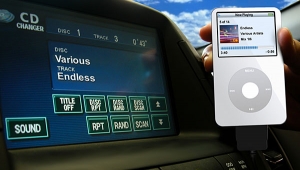| Columns Retired Columns & Blogs |
C or, maybe, D: All of the Above. Some times, it appears as nothing but a huge rip-off. Other times, it'd be stupid for a company not to use the millions poured into a high-quality IC chip, or a transport, for instance. But the key is what happens after. If it's substantially improved or added upon—no problem. If it's just a fancy case and a few bells and whistles, I think we are in murky territory.


























